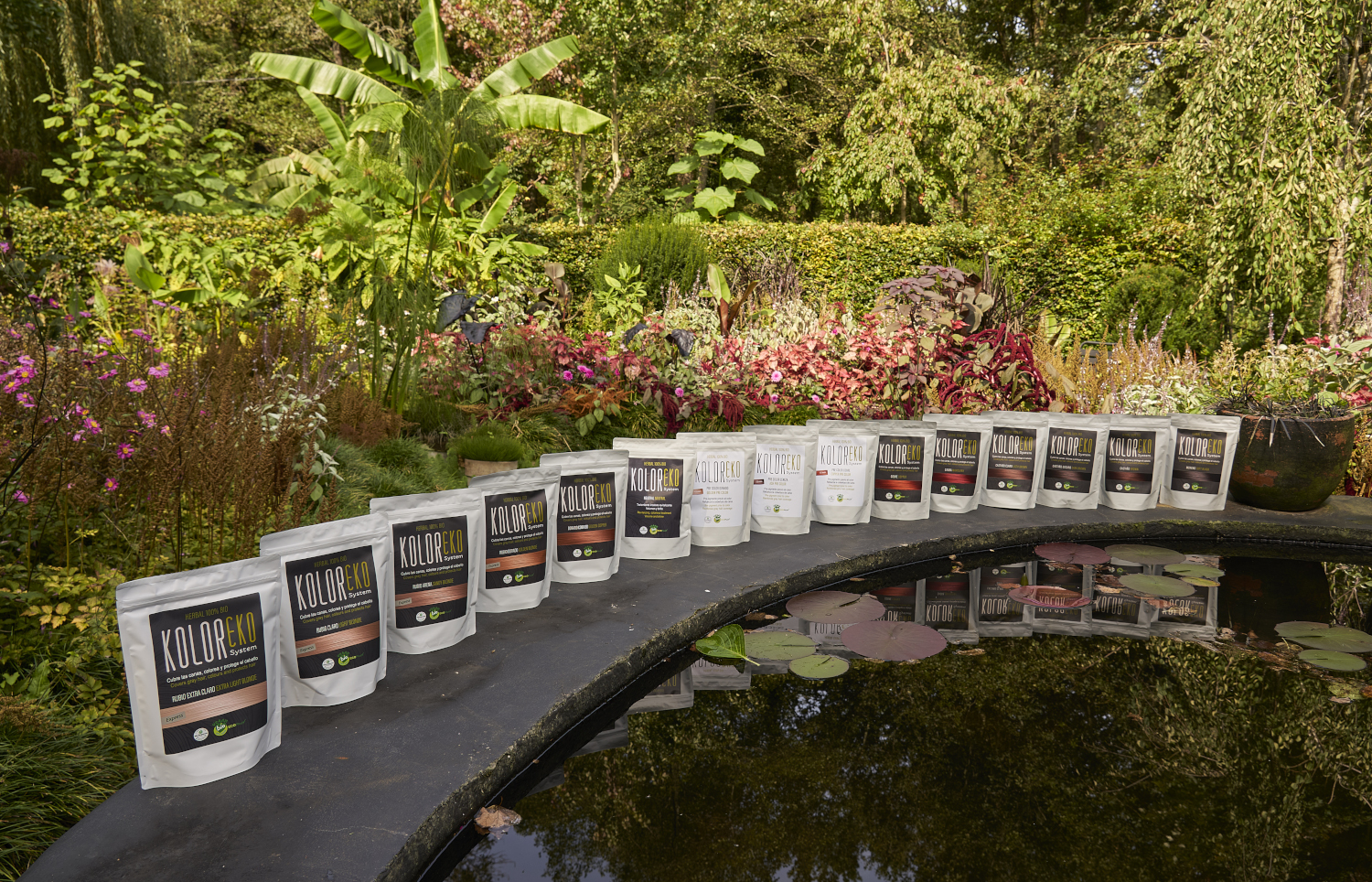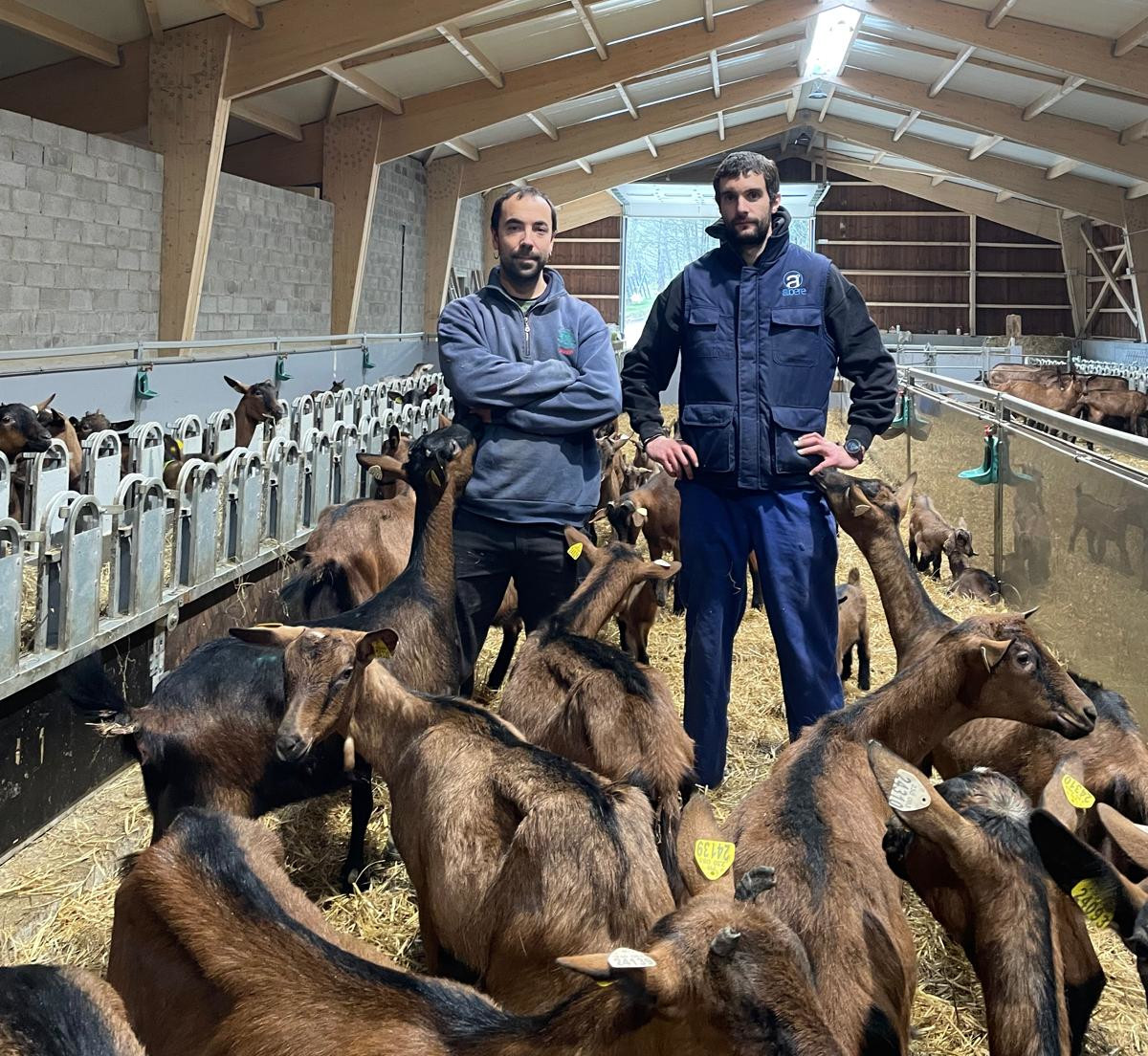Project that brings together agroecology and social environment in Amikuze
- In 2015, the Breton Christian Varin and the Marseille Odile Fabrègue arrived in the municipality of Amikuze Amendüze-Unaso. A couple of years ago they were looking for a place to start their life project; in Belgium, in France… until, at last, they fell in love with this corner of Euskal Herria and decided to stay there. Marine Jaunarena has worked for the last few months at the Ahalen Lurrak estate and it was she who gave us the explanations of the project. “They have five hectares that when they came to her they were completely abandoned and dirty,” he says. However, thanks to the work carried out during these years, members have managed to revitalize the environment and now sell their products at the Donapaleu fair.

A special case is that of the members of the Ahalen Lurrak project, since Fabrègue is retired and Varin will receive the toilet within two years. At that point in their lives, however, they have decided to launch the farm and the association. “What are we crazy? Yes! What are we a little rebellious? Why not?”, they are presented in the humor key on the project website. Varin had already had a relationship with the earth for over 30 years. Fabricio, for his part, has always worked horticulture in the social field. The farm works have also been divided into these two areas.
In order to disseminate the agroecological model, they organize workshops and formations on the farm, and also receive volunteers wanting to settle. They are also part of the Fermes d’Avenir project — Future Farms — and participate in their Compagnonnage programme. “On the estate they receive three pairs of a Frenchman and a refugee wanting to settle in agriculture, each pair for two months,” Jaunarena explains. The programme has a dual objective: to facilitate the social integration of refugees and, at the same time, the training of both volunteers in agroecology.
Understanding that the estate is the whole system
The members of the agroecology project understand agroecology as a circular system, and so they organize the elements of the farm: orchard, fruit, forest, animals, edible plants… “For example, they have a nursery in place to take out small plants, and in this greenhouse they also have a nursery. The goal is for animals to warm up the greenhouse, rather than using external energy sources,” says the Lord. Similarly, water rafts were also created at the top of the orchard, and through the pipes the water falls into the orchard, watering it gently and taking advantage of rainwater.
“In the end, the basis of agroecology is to think of the system as a whole, that on the farm everything always comes in, that we always look at what site it occupies and what its influence is. Nothing happens by chance, all the elements are in relation,” he added. What happened by chance is a collection of old tomato varieties composed by Fabricio: his brother started the collection and has followed it, and already has over 120 specimens. “Each year I plant two of each to reuse the seeds and gradually adapt them to the Basque Country.”
Duela lau urte abiatu zuten Azpeitian Enkarguk proiektua, Udalaren, Urkome Landa Garapen Elkartearen eta Azpeitiako eta Gipuzkoako merkatari txikien elkarteen artean. “Orain proiektua bigarren fasera eraman dugu, eta Azkoitian sortu dugu antzeko egitasmoa, bere izenarekin:... [+]
Donostiako Amara auzoko Izko ileapaindegi ekologikoak 40 urte bete berri ditu. Familia-enpresa txikia da, eta hasieratik izan zuten sortzaileek ile-apainketan erabiltzen ziren produktuekiko kezka. “Erabiltzaileen azalarentzat oso bortzitzak dira produktu gehienak, baina... [+]
Ubidekoak (Bizkaia) dira Imanol Iturriotz eta Aritz Bengoa gazteak. “Lagunak gara txikitatik, eta beti izan dugu buruan abeltzaintza proiektu bat martxan jartzeko ideia”, azaldu du Iturriotzek. Nekazaritzari lotutako ikasketak izan ez arren, baserri munduarekin eta... [+]
Iruñean bizi ziren Iñaki Zoko Lamarka eta Andoni Arizkuren Eseberri gazteak, baina familiaren herriarekin, Otsagabiarekin, lotura estua zuten biek betidanik. “Lehen, asteburuetan eta udan etortzen ginen eta duela urte batzuk bizitzera etorri ginen”, dio... [+]
Gipuzkoako hamaika txokotatik gerturatutako hamarka lagun elkartu ziren otsailaren 23an Amillubiko lehen auzo(p)lanera. Biolur elkarteak bultzatutako proiektu kolektiboa da Amillubi, agroekologian sakontzeko eta Gipuzkoako etorkizuneko elikadura erronkei heltzeko asmoz Zestoako... [+]
Emakume bakoitzaren errelatotik abiatuta, lurrari eta elikadurari buruzko jakituria kolektibizatu eta sukaldeko iruditegia irauli nahi ditu Ziminttere proiektuak, mahai baten bueltan, sukaldean bertan eta elikagaiak eskutan darabiltzaten bitartean.





















